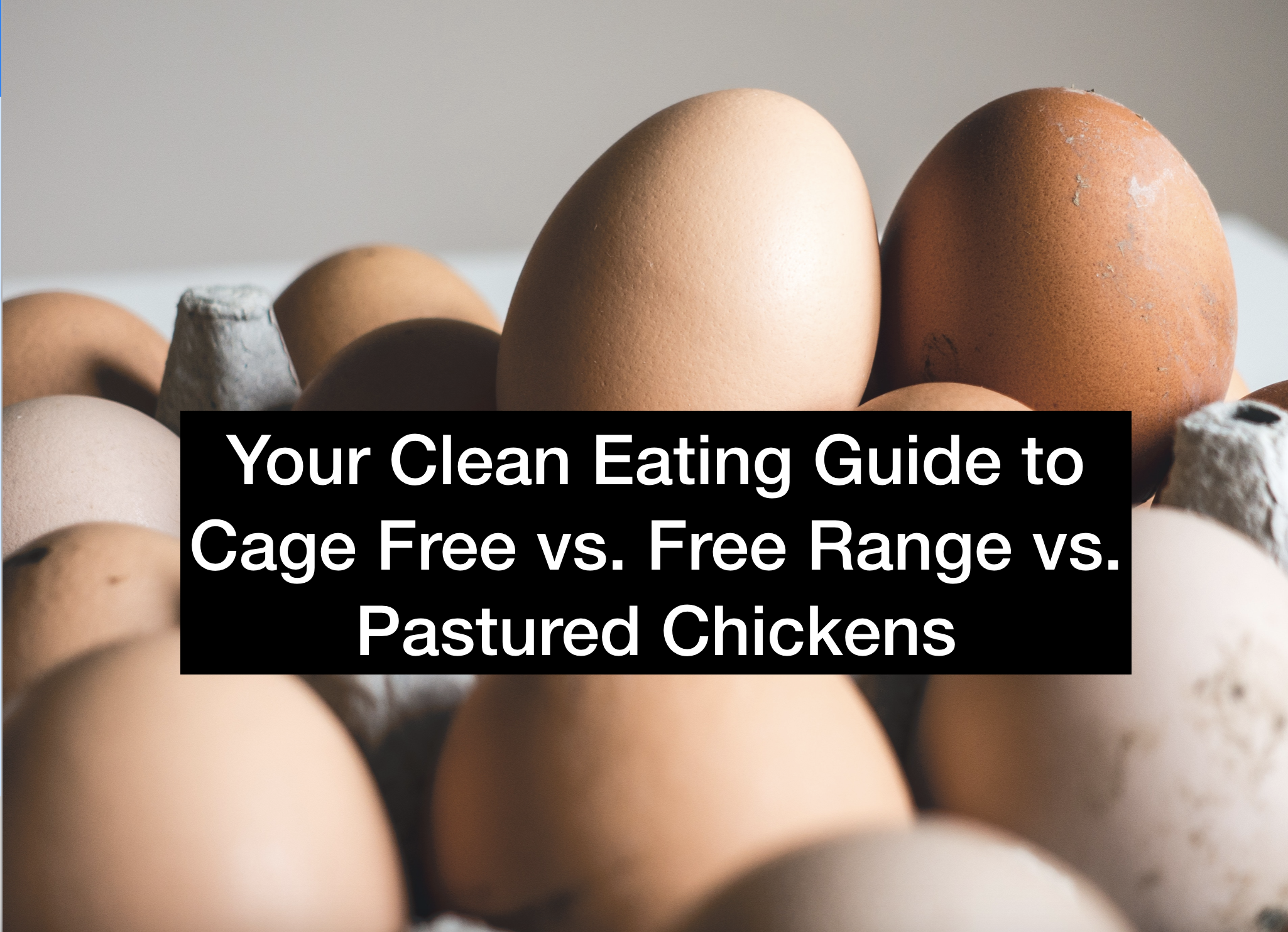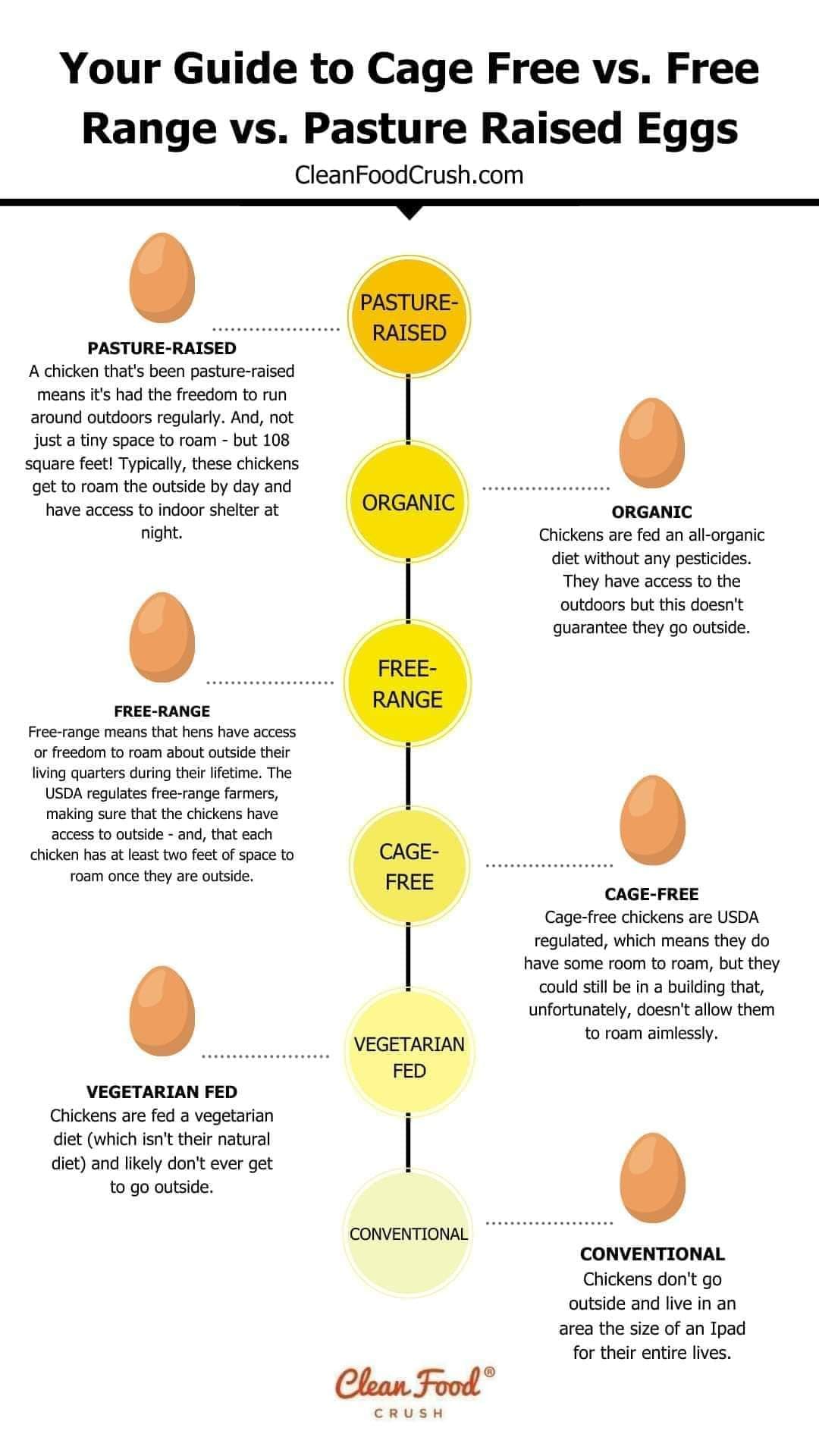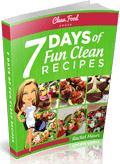

 I’m asked OFTEN about the different eggs available for purchase at the market, and what is truly best.
I’m asked OFTEN about the different eggs available for purchase at the market, and what is truly best.
This is a pretty deep topic and one that actually tugs at my heartstrings.
You see, I fully UNDERSTAND family budget and family dynamics more than anyone might imagine. I know that it’s important to be able to put quality food on the table, and we are not all in a season of life to always CHOOSE.
But since you asked…I warn you now that the FACTS cannot be unlearned or unheard. This is a simple guide to help you understand where your eggs come from so you can do your best!
Ever get to the egg section of the store and scratch your head wondering what’s really the healthiest egg choice? Free-range? Cage-free? Brown? Farm Fresh?
If you’re like most health-oriented people, you want to purchase eggs that come from a humane company that treats their chickens well. And, by well, I mean that they have room to stretch their wings, walk around, eat healthy food, and see the light of day.
In fact, these kinds of eggs are known to be healthier for us.
Not sure why you should be eating eggs daily? Here are 17 reasons to Eat Eggs.
Today, let’s delve a bit into “the world of eggs” with a short guide on cage-free vs. free-range vs. pastured chicken eggs.

The Statistics Are In
The Coalition for Sustainable Egg Supply, says that 95% of U.S. eggs that show up in grocery stores come from farms where chickens are raised in battery cages. A battery cage is a very small wire cage where anywhere from 4 to 12 chickens live. This means it’s possible that each chicken only has about the size of an iPad to live. Talk about crammed space! This means there’s no room for the chicken to walk around or even spreading their wings.
Let’s look at the top choices for healthy and humane eggs.
Cage-Free
Cage-free chickens are exactly that – cage-free. But (and this is a pretty big but), this doesn’t mean that they’re enjoying freedom roaming the fields outdoors. Cage-free chickens are USDA regulated, which means they do have some room to roam, but they could still be in a building that unfortunately, doesn’t allow them to roam aimlessly among the grass, trees, and bask in the sun. The reality is some farmers free the chickens from the battery cages, only to use larger cages that hold far more chickens than considered humane.
On the bright side, if you are sold on buying cage-free eggs, go for the ones that are certified humane by the Humane Farm Animal Care (HFAC). Look for their trusted symbol on the label. This assures that the hens were able to have their own 1.5 square feet to roam.
Free-Range
Free-range means that hens have access or freedom to roam about outside their living quarters during their lifetime. The USDA regulates free-range farmers, making sure that the chickens have access to outside – and, that each chicken has at least two feet of space to roam once they are outside.
This is a better option than cage-free, as in all probability, farmers raising free-range chickens are a bit more conscious about the living conditions of their birds. However, the reality is that some hens may still never see the light of day because “free-range” could just mean that there is access to get outside, such as a small door, but the hens may never actually go outside.
Again, look for the Certified Humane Raised and Handled label on your egg carton. This means that the chickens have actually met humane standards and decent treatment throughout their lives.
Pasture-Raised
A chicken that’s been pasture-raised means it’s had the freedom to run around outdoors regularly. And, not just a tiny space to roam – but 108 square feet! Typically, these chickens get to roam the outside by day and have access to indoor shelter at night.
Granted, the USDA doesn’t regulate pasture-raised chickens, but some companies go through the necessary “Certified Humane” inspection to get the HFAC pasture seal on their product label. This means that particular egg farm has met strict guidelines and standards considered humane and just plain fair animal treatment.
What Kind of Eggs are the Most Optimal?
Hands down, if you desire eggs that come from what the HFAC deems “treated and fed well”, then pasture-raised eggs are your best bet. If your budget isn’t aligned with this desire, keep it in mind for when you’re in a better spot financially and just do your best.
You can also check around to see who is into pasture-raised eggs and go check out their space. You might even visit your local farmers market and find a great deal. Need an egg-for-dinner recipe idea? Try these Spicy Fire Roasted Poached Eggs, or this Veggie Fiesta Fritatta Skillet.















